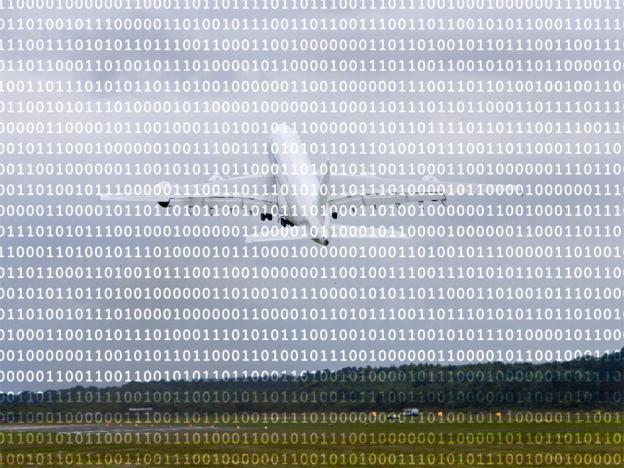
Today’s technology is simply amazing. You can adjust the temperature of your home with your phone, and the thermostat will even send reports of how much energy you’ve used and when you turned the heat on. General Electric has learned from consumer uses of the Internet and is working on what the company calls the “Industrial Internet.” GE took a big step forward with its plan today by announcing the new Predictivity platform and a partnership with Amazon Web Services, Accenture, and Pivotal.
So, what the hell does this all mean? GE’s vision of the Industrial Internet revolves around the idea that by 2020, industrial machines, like jet engines and MRI machines, will be connected to the Internet and will send a constant stream of information gathered by embedded sensors to their owners. For example, sensors on a jet engine could inform maintenance technicians when a piece is veering unevenly based on data from sensors on other engines. GE CEO Jeff Immelt told AllThingsD that the Industrial Internet is the next big thing because the sensors could be used to find the greatest points of jet fuel efficiency, which could save hundreds of thousands of dollars. The whole concept is predicting what’s going to happen to a machine based on historical data. Sorting through and making sense of all that data is a massive task that’s only going to grow as sensor use becomes more widespread.
This is where GE’s Predictivity software comes into play. It’s based on the Hadoop software platform and is using Proficy Historian HD, which is software that deals with historical data management. All of this data will be connected through Amazon Web Services, bringing all of these data management tools into the cloud and making it easily accessible to industrial clients. The goal is to increase efficiency. By predicting a machine’s future through analytics, GE will help businesses eliminate downtime and reduce waste. The analytical data could even help develop better ways to use GE’s industrial products.
This isn’t necessarily technology we’ll personally see in action, but the Industrial Internet and the wrangling of big data may end up making our next plane flight shorter or (even better) cheaper.


